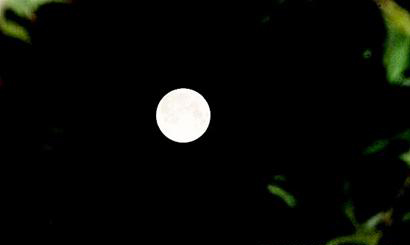When night falls, the moon rises
Among all the stars, planets, satellites, and other mysterious travelers in the night sky, the moon—the earth’s only natural satellite—has always been a special one for the Chinese people.
 |
The moon is widely known as the Moon God in China, who may bring good luck and help people find their life partners.
Since ancient times, the moon has been given much attention by the Chinese people. The emperor had to worship the Sun in the spring and the moon in the autumn for an ample harvest and sustainable power.
Its regular phases make the moon a very convenient timepiece, and the periods of its waxing and waning form the basis of many of the oldest calendars.
In China, this moon-based calendar, or nongli (agricultural calendar), works as an important reminder in traditional Chinese farming. It shows when the four seasons come and end, when to sow seeds and irrigate and other matters related to farming.
Today, this calendar has become a crucial element of traditional Chinese cultures. It is also used for marking traditional holidays, such as Chinese New Year, the Duanwu Festival and the Mid-autumn Festival.
In addition, the calendar is still used in tradition-bound Chinese households around the world to pick “auspicious dates” for important events such as weddings, funerals, and business deals.
With its pure light and bright surface, the moon has been the subject of many works of art and literature.
This can be best seen in the case of Li Bai, a productive poet of the Tang Dynasty (BC 618-BC907). Among his 900 poems passed down to us today, over 30 percent are about the moon. He even described himself as a slave of the moon to express his love for it.
So, why would the Chinese people have such an affection for the moon, instead of other objects in the vast universe?
To begin with, the moon is the celestial body that is closest to the earth in which we are living and people are curious about its size, surface and structure.
Wan Hu in the Southern Song Dynasty (1127-1279) was the first man to attempt to find the answers by flying to the moon. He sat on his self-made rocket (not to be confused with today’s rockets) and tried to land on the moon. He failed, and died. But his pioneering and adventurous spirit encourages more people to explore that mysterious object.
Second, in ancient times many people had to leave their homes, seeking fortune and fame. When the moon turned around, its bright light made them homesick and miss their families in distant places. That may explain why the moon is an inspiration for countless literary works.






















